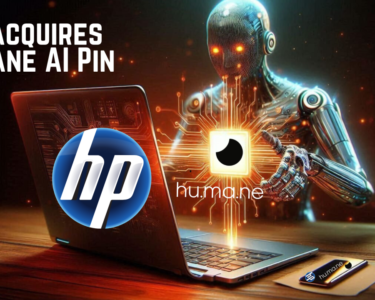“`html
Major AI Innovations Expected by 2025: Microsoft Insights
The landscape of artificial intelligence (AI) is evolving rapidly, and according to Microsoft, 2025 will mark a significant milestone with groundbreaking innovations shaping the future. Read on to explore detailed insights and trends driving AI forward.
The world of artificial intelligence (AI) continues to grow at an unprecedented pace, revolutionizing how businesses operate, how people interact with technology, and how industries innovate. But perhaps the most exciting developments are yet to come. Recent insights from Microsoft suggest major AI innovations expected by 2025 will redefine the tech world as we know it. These changes represent not just technological advancement but a complete paradigm shift that promises to make AI an even more integral part of our daily lives.
Let’s take a deeper dive into the trends expected to shape AI by 2025, the industries they’ll transform, and why these advancements are important.
Microsoft’s Vision for AI in 2025
Microsoft has consistently been at the forefront of AI development, and their predictions for 2025 highlight some key changes that could reshape technology. From improved natural language processing to universally accessible AI systems, Microsoft envisions a future where AI is more personalized, reliable, and immersive. But what specific innovations are on the horizon?
1. Enhanced Natural Language Processing (NLP) and Understanding
NLP has already made significant strides with tools like ChatGPT and Microsoft Copilot, but Microsoft believes that these tools will become far more intuitive and contextual by 2025. According to them, enhanced NLP systems will enable seamless communication between humans and machines, blurring the lines between human-like interactions and automated responses.
Imagine performing everyday complex tasks like contracts drafting, legal research, or customer care without even realizing it’s an AI handling it. This evolution will ultimately save time and significantly boost productivity.
What is Natural Language Processing? Learn more here.
2. AI as a Core Utility
One of the boldest claims by Microsoft is that AI will move away from being a luxury for industries and businesses into becoming a core utility like electricity. By integrating AI seamlessly into devices, applications, and cloud systems, users will enjoy the benefits without needing specialized knowledge or significant investments. AI-as-a-Service (AIaaS) will empower small businesses and even individuals to create, optimize, and scale their initiatives efficiently.
For instance, businesses could utilize Microsoft Azure, an already AI-driven cloud computing platform, to deploy real-time analytics, automate processes, and run complex algorithms without building infrastructure from scratch.
Industries Most Likely to Benefit
With these major AI innovations expected by 2025, certain industries are poised to experience transformative growth. Here are a few examples highlighted by Microsoft and industry leaders:
Healthcare
AI in healthcare is projected to improve diagnostic accuracy, personalize treatments, and streamline patient care processes. Microsoft foresees software capable of analyzing entire patient records and matching them with the latest medical research in seconds. Telemedicine powered by AI could also ensure rural areas receive timely and quality healthcare services.
Learn more about AI in healthcare on WHO’s site.
Education
AI’s role in education will likely accelerate, providing personalized learning experiences for students. Smart tutors and automated grading systems will help teachers dedicate more time to fostering creativity and critical thinking in classrooms.
Retail
From improving inventory management to offering AI-driven personalization, the retail industry is set to benefit significantly from innovations like predictive algorithms and virtual assistant tools. Microsoft predicts AI-driven e-commerce stores will soon provide shopping experiences that feel tailored to each individual customer.
Challenges Along the Way
While the promise of major AI innovations by 2025 is exciting, it’s not without its challenges. For example:
1. Ethical and Privacy Concerns
As AI becomes more powerful, ethical considerations—like ensuring privacy and preventing misuse—grow increasingly critical. According to Microsoft, developing AI responsibly will require robust governance, public consultation, and transparency from organizations worldwide.
2. Overcoming Bias
Bias in AI systems remains a significant issue. Many existing algorithms have been found to discriminate based on gender, race, or socioeconomic status. Microsoft says achieving fairness in AI models will be vital by 2025 to ensure equitable outcomes for users worldwide.
3. Skill Gap for AI Adoption
Lastly, training individuals and businesses to work alongside AI-driven systems remains a massive challenge. Institutions will need to emphasize essential AI skills to prepare the workforce for the future.
Why 2025 Matters for AI Advancements
The year 2025 is just around the corner, but it holds immense promise for how AI will revolutionize every aspect of life. Microsoft is actively working on tools like Azure OpenAI Service and Dynamics 365 Copilot to deliver on these predictions. For consumers, the convenience, efficiency, and personalization that AI promises will soon be available at their fingertips—and not as distant fantasies.
It’s also crucial for businesses large and small to consider how they can integrate these advancements into their strategies now. Early adoption of these opportunities will set organizations up for success in the AI-centered future.
Read more technology and AI trends on ZexNews.
Final Thoughts
The insights shared by Microsoft underscore a simple truth: The AI revolution is not just arriving; it’s accelerating. With major AI innovations expected by 2025, industries, individuals, and society as a whole will reap incredible benefits while navigating challenges like ethics and accessibility.
As you prepare for this dynamic AI-driven future, stay informed, adapt, and explore how these innovations can transform your day-to-day life or enterprise. The AI horizon is brighter than ever—and 2025 might just be the tipping point we’ve been waiting for.
Excited for the future of AI? Share your thoughts in the comments and stay tuned for more updates on cutting-edge innovation.
“`





